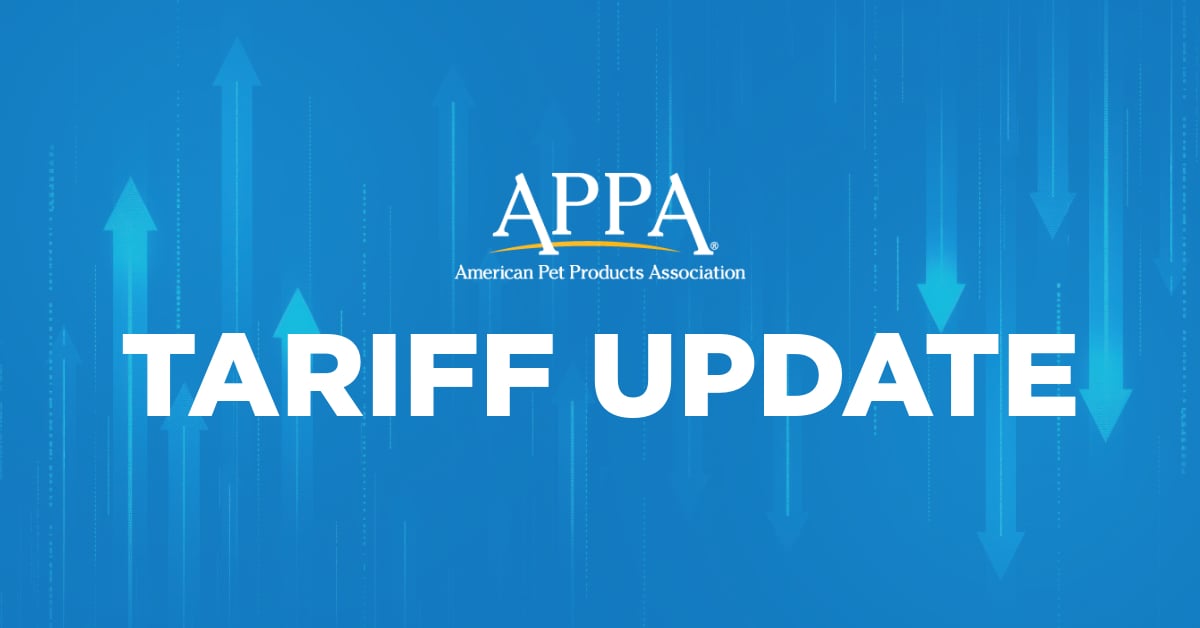- CSMS # 66146676 - INTERIM GUIDANCE: Retroactive Implementation of the United States-Japan Agreement
- Implementing THE United States–Japan Agreement
On September 5, 2025, President Trump signed an order changing U.S. reciprocal tariffs and setting rules for trade agreements. Some products, like bullion, pharmaceuticals, and critical minerals, are now exempt from tariffs, while others, like aluminum hydroxide, resin, and silicones, are newly taxed. Pet product importers are likely unaffected, since the changes focused on industrial, chemical, and pharmaceutical goods. All importers should review the changes in the attached notices to understand how they may be affected.
CSMS # 66151866 - UPDATE – Products Exempted from Reciprocal Tariffs
- Regulating Imports With a Reciprocal Tariff To Rectify Trade Practices That Contribute to Large and Persistent Annual United States Goods Trade Deficits
- Modifying the Scope of Reciprocal Tariffs and Establishing Procedures for Implementing Trade and Security Agreements
On September 9, 2025, the U.S. Supreme Court agreed to expedite its review of President Trump's "Liberation Day" tariffs, consolidating the cases Trump v. V.O.S. Selections, Inc. and Learning Resources, Inc. v. Trump. The Court will hear oral arguments in early November 2025, with a decision expected by the end of the year. A significant unresolved issue is the potential administration of refunds if the Supreme Court determines that the President's use of the International Emergency Economic Powers Act (IEEPA) and reciprocal tariffs was unlawful. Importers are advised to identify impacted entries, monitor liquidation dates, and consult with trade attorneys or customs brokers regarding options to extend liquidation considering the pending case. Even if the Supreme Court upholds the rulings of the Court of Appeals and the Court of International Trade, the President may still implement other sector-specific tariffs in the future. Importers should remain aware of these risks when planning future purchases, as tariffs could continue to affect trade.
September Office Hours
Join our mid-month live Q&A sessions where members can ask questions and get real-time answers from trade professionals like Rebecca and other experts. Next office hours occur on Thursday, September 18, 2025, at 3 PM ET.
Progressive Trade Consulting (PTC) provides guidance on how transportation, customs, or other government regulations may affect the Client’s business.
PTC is not a law firm, does not practice law, and does not provide legal advice. The Client should consult legal counsel for any legal matters, including trade compliance.
The Importer of Record (IOR) is responsible for complying with customs regulations and managing the import process. This includes obtaining required licenses and permits, classifying and valuing goods correctly, declaring goods accurately, paying duties and taxes, following import rules, and maintaining proper records.
Progressive Trade Consulting
Subscribe to our newsletter
Get recent blog articles, information about APPA research publications, regulatory updates, and upcoming event details.

From Bigger Tanks to Stronger Bonds: Fish & Reptile Ownership Evolves in 2025
APPA's latest report reveals shifting demographics, rising engagement, and the important role smaller pets have in U.S. households
The American Pet Products Association (APPA) Releases 2025 Dog & Cat Report, Revealing a New Era of Pet Ownership
Trends show a record-breaking rise in cat ownership, deeper human-animal bonds, and a growing focus on proactive pet wellness.
New Coalition Forms to Tackle Tariff Challenges in the Pet Industry
Seven leading pet industry organizations unite to host informative tariff webinar STAMFORD, CONN. (May 6, 2025) – The American Pet Products...


